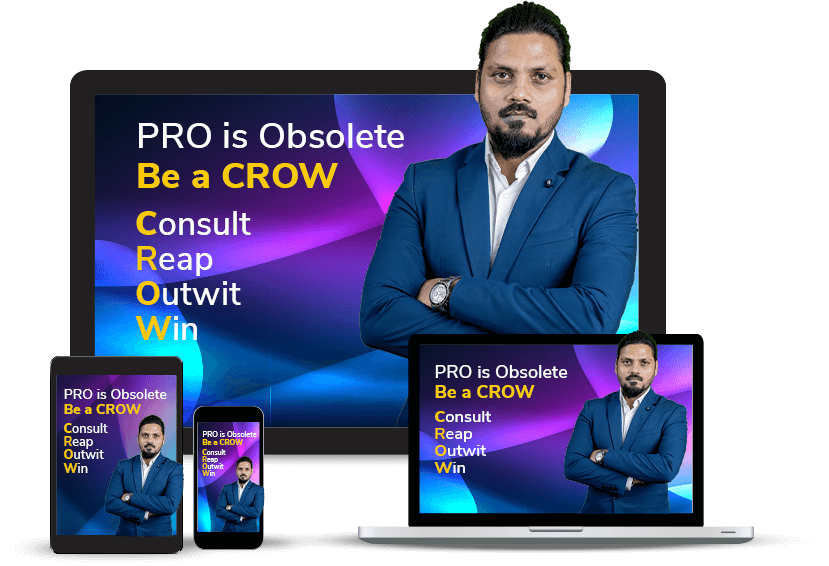
Why Should An Aspiring Entrepreneur Do A Feasibility Study?
Are you tired of working for someone else and dreaming of starting your own business? Or perhaps you have a brilliant idea that you believe could change the game in your industry? Whatever your motivation may be, starting a new business venture is an exciting and challenging endeavor. However, before you dive headfirst into your entrepreneurial journey, it’s essential to conduct a thorough feasibility study to assess the viability of your concept.
In this article, we will explore why a feasibility study is crucial for entrepreneurs and provide you with the essential elements of a comprehensive feasibility study to help you set a strong foundation for your business success. So, grab a cup of coffee and let’s dive into the exciting world of entrepreneurship!
The Importance of Feasibility Studies in Business Planning
Feasibility studies play a crucial role in the success of any new business venture. Let’s delve into why they are essential for entrepreneurs looking to future-proof their startups.
Understanding the Purpose of Feasibility Studies
Before undertaking on a new business endeavor, conducting a thorough feasibility study is a vital step. This detailed analysis allows entrepreneurs to assess the viability of their projects and uncover any potential risks that may hamper business growth. As a project manager, it is imperative to gather the right team of experts to perform this critical task.’
Key Components of Feasibility Studies
- Market Analysis
One of the critical aspects of a proposed project is understanding the market demand. A feasibility study delves into the market dynamics, competition, and consumer behavior to determine if the business idea aligns with the current market trends.
- Financial Viability
Assessing the financial resources required for the business venture is essential. A feasibility study provides crucial insights into the financial feasibility of the concept, helping entrepreneurs make informed decisions about the right time to launch their venture.
The Role of Feasibility Studies in Business Success
In the planning process of any new business, a feasibility study acts as an essential tool to guide entrepreneurs towards success. Expert guidance during this phase can help entrepreneurs navigate the complexities of the business landscape and make better decisions for the future.
“Feasibility studies are not just about evaluating the feasibility of an idea; they are about setting a strong foundation for a successful business.”
Understanding the Elements of a Feasibility Study
Entrepreneurs launching on a new venture must understand the crucial elements that make up a comprehensive feasibility study. By delving into each aspect with precision and attention to detail, you can effectively evaluate the viability and potential success of your business idea.
1. Market Study
Conducting a thorough market study is essential to gauge the demand for your product or service. This involves analyzing market trends, identifying your target audience, and assessing competitors in the industry to position your business strategically.
2. Financial Analysis
A detailed financial analysis is paramount to determine the potential profitability of your venture. This should include assessing initial investment requirements, projected revenue streams, and anticipated expenses to create a realistic financial forecast.
3. Risk Assessment
Identifying and evaluating potential risks associated with your business idea is a fundamental aspect of a feasibility study. Understanding the challenges and uncertainties allows you to develop contingency plans and mitigate adverse impacts on your project.
4. Technical Evaluation
Assessing the technical feasibility of your business concept is crucial, especially if it involves complex technologies or processes. This involves evaluating resources, infrastructure requirements, and technological capabilities to ensure the project’s successful implementation.
5. Operational Considerations
Examining the operational aspects of your proposed venture helps in understanding the logistical requirements and operational efficiency. This includes analyzing the required resources, processes, and operational strategies to streamline business operations effectively.
6. Legal and Regulatory Compliance
Ensuring compliance with legal and regulatory frameworks is imperative for the long-term sustainability of your business. Conducting a thorough evaluation of applicable laws and regulations helps in navigating potential legal challenges and avoiding penalties.
“Feasibility studies play a pivotal role in guiding entrepreneurs towards making informed business decisions that can significantly impact the future success of their ventures.”
Conducting a Detailed Analysis for Business Success
When it comes to launching a new business venture, the importance of conducting a detailed analysis cannot be overstated. This step is crucial in determining the feasibility and potential success of your business idea. Let’s delve into the essential aspects of conducting a comprehensive analysis for ensuring business success.
1. Understanding the Market Demand
Before undertaking on any new business venture, it is essential to assess the market demand for your product or service. Conduct thorough market research to identify the needs and preferences of your target audience. This step is vital in shaping your business model and strategy.
2. Assessing the Viability of the Idea
A thorough feasibility study involves assessing the viability of your business idea in the current market landscape. Analyze the potential risks, competition, and market trends to determine if your idea has the potential to succeed in the long run.
3. Financial Viability Analysis
One of the critical aspects of a feasibility study is evaluating the financial viability of your proposed project. This includes conducting a detailed financial analysis to determine the projected costs, revenue streams, and potential return on investment.
“Conducting a detailed feasibility study is not just about mitigating risks but also about identifying opportunities that can lead to business success.”
4. Importance of Expert Guidance
Seeking expert guidance during the feasibility study process can provide crucial insights into the various aspects of your business idea. Collaborating with experienced professionals can help you navigate complex challenges and make informed decisions.
5. Thorough Feasibility Study Service
Consider engaging a feasibility study service to ensure a comprehensive analysis of your business concept. These services provide expert evaluation and guidance, allowing you to make well-informed decisions for your business venture.
“The right time to conduct a feasibility study is at the inception of a new business idea. It helps in setting the foundation for a successful business journey.”
By conducting a thorough analysis that covers market demand, idea viability, financial aspects, and seeking expert guidance, you can set a solid foundation for your business success.
Evaluating the Viability of a Project with Feasibility Studies
When it comes to venturing on a new business venture, one of the critical aspects that can determine its success is evaluating the viability of the project. This evaluation process often involves conducting thorough feasibility studies, which are essential tools for entrepreneurs to assess the feasibility of their business ideas. Let’s delve into the significance of feasibility studies in determining the future success of your startup:
Importance of Feasibility Studies
- Understanding Market Demand
Before diving into a new business venture, it is crucial to conduct a market study as part of the feasibility analysis. This helps in identifying the current market needs and demands that your business idea aims to address.
- Assessing Potential Risks
Feasibility studies also play a vital role in identifying potential risks that could impact the success of your project. By conducting a detailed analysis of these risks, entrepreneurs can better prepare for challenges that may arise during the planning process.
- Determining Financial Viability
Another key aspect of feasibility studies is evaluating the financial resources required to execute the proposed project. This assessment helps entrepreneurs determine whether the project is financially feasible and whether it aligns with their available resources.
Expert Guidance and Insight
When undertaking feasibility studies, seeking expert guidance can provide crucial insights into the viability of your business idea. Working with a project manager or a team of experts can offer valuable assistance in navigating the complexities of the feasibility study process.
“A thorough feasibility study serves as a compass for entrepreneurs, guiding them towards making informed decisions about the viability of their business ventures.”
Evaluating the viability of your project through comprehensive feasibility studies is a strategic approach that can significantly impact the future success of your startup. By considering the critical aspects of a proposed project, conducting a thorough analysis, and seeking expert guidance, entrepreneurs can make well-informed decisions that lay the groundwork for a successful business venture.
Engaging Expert Guidance for a Thorough Feasibility Study
Launching a new business venture requires meticulous planning and analysis to ensure its viability and success. This is where expert guidance for a thorough feasibility study plays a pivotal role. Let’s delve into the essential aspects of engaging with experts for conducting a comprehensive feasibility study.
1. Choosing the Right Team for the Job
In the preliminary stages of a new business endeavor, selecting a team of experts with diverse skill sets and experience is crucial. A project manager with a proven track record in overseeing successful ventures can provide invaluable insights. Remember, the expertise of the team members should align with the specific requirements of the feasibility study.
2. Leveraging Specialized Knowledge
Expert guidance brings a deep understanding of industry trends and market dynamics to the table. By tapping into this specialized knowledge, entrepreneurs can gain crucial insights into potential risks, market demand, and the competitive landscape. This paves the way for informed decision-making and strategic planning.
3. Uncovering Critical Aspects of the Proposed Project
An expert-led feasibility study goes beyond surface-level analysis to uncover critical aspects that may impact the success of the project. From conducting a detailed market study to assessing the financial viability of the idea, experts delve into every aspect to provide a comprehensive evaluation.
4. Ensuring Financial Viability
One of the key goals of a feasibility study is to assess the financial feasibility of the proposed venture. Expert guidance helps in conducting a thorough financial analysis, including cost projections, revenue forecasts, and return on investment calculations. This data-driven approach ensures that the business model is sound and sustainable.
Considering Market Trends and Potential Risk in Feasibility Studies
When launching a new business venture, it is vital to consider market trends and potential risks as part of a thorough feasibility study. By analyzing these factors, entrepreneurs can make informed decisions that increase the chances of business success.
Understanding Market Trends
Analyzing market trends provides valuable insights into the current landscape and future projections of the industry in which the business will operate. This information helps entrepreneurs identify opportunities for growth and innovation, as well as potential challenges that may arise. By staying informed about market trends, entrepreneurs can adapt their business strategies to meet the evolving demands of consumers.
“Market trends are like waves in the ocean; understanding their patterns can help you ride the wave of success.”
Assessing Potential Risk
Assessing potential risks is a crucial aspect of any feasibility study. By identifying and evaluating risks such as market competition, regulatory changes, economic fluctuations, and technological advancements, entrepreneurs can develop risk mitigation strategies to safeguard their businesses against unforeseen challenges. Taking a proactive approach to risk management can help entrepreneurs navigate uncertainties and increase the likelihood of business sustainability.
“Risk assessment is not about avoiding risks but about managing them effectively to ensure long-term business viability.”
Assessing the Timing and Resources Needed for a New Venture
Starting a new venture requires careful planning and consideration of various factors to ensure its success. Assessing the timing and resources needed for your startup is a crucial step in the feasibility study process. Let’s delve into the key aspects to consider:
1. Market Demand Analysis
Before launching a new venture, it’s essential to gauge the demand for your product or service in the market. Conduct thorough market research to understand your target audience, competitors, and potential customer base. This analysis will help you identify gaps in the market and tailor your business model to meet the needs of your customers effectively.
2. Financial Resource Evaluation
One of the critical aspects of a proposed project is evaluating the financial resources required to kickstart and sustain the venture. Create a detailed financial plan that outlines your startup costs, operating expenses, revenue projections, and potential risks. Seek expert guidance to ensure your financial projections are realistic and align with your overall business goals.
3. Timing Considerations
Timing can play a significant role in the success of a new venture. Assess the market conditions, industry trends, and economic factors to determine the right time to launch your business. Timing your entry into the market strategically can give you a competitive advantage and increase your chances of success.
4. Resource Allocation
Proper allocation of resources is essential for the smooth functioning of your startup. Identify the right person or team to lead the project and allocate resources efficiently to different aspects of your business. A project manager can help oversee the planning process and ensure that resources are utilized effectively to achieve your business objectives.
In the words of Peter Drucker, “Whenever you see a successful business, someone once made a courageous decision.” Assessing the timing and resources needed for your new venture requires courage, strategic thinking, and a thorough feasibility study to ensure the viability of your business idea.
Implementing Feasibility Study Findings for Business Growth
Implementing the findings from a thorough feasibility study is crucial for the sustainable growth and success of your business venture. Here, we delve into the actionable steps you can take to leverage the insights gathered during the feasibility study phase.
Leveraging Market Insights
- Analyze the market trends and consumer behavior data to pinpoint untapped opportunities.
- Focus on addressing market demands and differentiating your offerings to stand out from competitors.
Optimizing Resource Allocation
- Use the feasibility study recommendations to allocate financial resources wisely, ensuring optimal ROI.
- Invest in key areas identified as critical for the success of your business venture.
Risk Mitigation Strategies
- Utilize the detailed risk analysis from the feasibility study to develop effective risk management strategies.
- Plan for contingencies and have backup solutions in place to address unforeseen challenges.
Enhancing Business Model
- Incorporate the feedback received during the feasibility study process to refine your business model.
- Ensure that your business plan aligns with the identified market opportunities and consumer needs.
Adopting Expert Guidance
- Collaborate with industry experts and advisors to gain crucial insights and recommendations.
- Use expert guidance to fine-tune your strategies and capitalize on growth opportunities.
Track Progress and Adapt
- Implement key performance indicators (KPIs) to measure the impact of the feasibility study findings on your business growth.
- Be prepared to adapt and make necessary adjustments based on real-time data and market feedback.
The Market Demand & Opportunities via Feasibility Studies
When it comes to launching a new business venture, understanding the market demand and opportunities is crucial to ensure its success. Feasibility studies play a vital role in providing entrepreneurs with valuable insights into the market landscape and the potential for their business ideas to thrive.
Assess Market Demand
To begin the feasibility study process, it is essential to conduct a comprehensive analysis of the market demand. This involves researching the target audience, their needs, preferences, and buying behaviors. By identifying the gaps in the market and understanding what customers are looking for, entrepreneurs can tailor their business concept to meet those demands effectively.
Explore Opportunities
Feasibility studies also help entrepreneurs explore various opportunities within the market. This includes identifying potential niches, untapped segments, emerging trends, and competitive advantages. By analyzing the market dynamics and trends, entrepreneurs can position their businesses strategically to capitalize on opportunities and gain a competitive edge.
Conduct Market Research
Market research is a key component of feasibility studies that involves gathering data, conducting surveys, and analyzing trends to determine the feasibility of a business idea. By collecting and analyzing market data, entrepreneurs can make informed decisions regarding the viability of their project, potential risks, and growth opportunities.
Utilize Expert Guidance
Entrepreneurs can benefit greatly from seeking expert guidance during the market demand analysis phase of the feasibility study. Industry experts, market analysts, and consultants can provide crucial insights and recommendations based on their experience and market knowledge. This external perspective can help entrepreneurs make well-informed decisions and mitigate potential risks.
Leveraging Feasibility Studies as Tools for Decision Making
Before diving into the intricacies of leveraging feasibility studies for informed decision-making, it’s crucial to understand the pivotal role these studies play in the success of new ventures. A feasibility study is not merely a routine step in the planning process but a comprehensive analysis that assesses the viability of a proposed project from multiple perspectives. Let’s explore how entrepreneurs can capitalize on feasibility studies to make well-informed decisions that pave the way for business success.
1. Understanding the Significance of Feasibility Studies
Feasibility studies serve as an essential tool for entrepreneurs by providing crucial insights into the various aspects of a new business venture. From assessing the market demand to evaluating the financial viability of the idea, a thorough feasibility study acts as a guiding beacon for entrepreneurs navigating the complexities of starting a new business.
2. Identifying Potential Risks and Challenges
One of the primary objectives of a feasibility study is to identify potential risks and challenges that may impede the success of a new venture. By conducting a detailed analysis of the market dynamics, competition landscape, and regulatory environment, entrepreneurs can proactively mitigate risks and devise strategic plans to overcome challenges.
3. Utilizing Expert Guidance for Strategic Decision-Making
Engaging experts in the field to conduct a feasibility study can provide entrepreneurs with crucial insights and expert guidance. These professionals bring a wealth of experience and industry knowledge to the table, enabling entrepreneurs to make informed decisions backed by data-driven analyses and recommendations.
4. Assessing Financial Viability
An integral aspect of feasibility studies is the assessment of the financial resources required to launch and sustain a new business venture. By conducting a thorough financial analysis, entrepreneurs gain a comprehensive understanding of the capital needs, projected revenues, and return on investment, allowing them to make sound financial decisions.
5. Timing is Everything
Timing plays a critical role in the success of a new business venture. Feasibility studies help entrepreneurs determine the right time to launch their venture based on market conditions, consumer trends, and economic indicators. By waiting for the opportune moment, entrepreneurs can maximize their chances of success.
The Final Note: Why Should An Aspiring Entrepreneur Do A Feasibility Study?
Feasibility studies are essential for the success of any startup. By conducting thorough research and analysis, entrepreneurs can make well-informed decisions that mitigate risks and positively impact the trajectory of their businesses.
These studies provide a roadmap for success, guiding you through potential challenges and opportunities with clarity and confidence. Investing in a comprehensive feasibility study today is an investment in the longevity and sustainability of your startup for tomorrow. With data-driven insights, you can stay ahead of the curve and steer your business towards growth and profitability.
Don’t miss out on the benefits of a feasibility study. Book a Consultation with me, Ajay Prakash today to learn more and take the first step towards a more successful future.
FAQ: Why Should An Aspiring Entrepreneur Do A Feasibility Study?
Q1. What is a feasibility study in business?
Ans: A feasibility study is an analysis of the practicality and potential success of a proposed business venture. It involves assessing various factors such as market demand, financial viability, technical feasibility, and potential risks. This study helps entrepreneurs make informed decisions about whether to pursue a business idea or not, and how to best structure and plan for its success.
Q2. What are the key elements of a feasibility study?
Ans: A feasibility study is an analysis of the practicality and potential success of a proposed business venture. It involves assessing various factors such as market demand, financial viability, technical feasibility, and potential risks. This study helps entrepreneurs make informed decisions about whether to pursue a business idea or not, and how to best structure and plan for its success.
Q3. Why is a feasibility study important for entrepreneurs?
Ans: A feasibility study is an essential process for entrepreneurs as it enables them to evaluate the potential success of their business idea. It assists them in identifying any potential challenges or obstacles that may arise and helps them to make informed decisions about the viability of their venture.
Moreover, a feasibility study can help entrepreneurs to secure funding and attract investors by demonstrating a thorough understanding of their market and business model. In summary, a feasibility study is crucial for ensuring the long-term success and sustainability of a startup.
Q4. How do feasibility studies help with decision-making?
Ans: Entrepreneurs rely on feasibility studies to obtain valuable information and insights that assist them in making well-informed decisions regarding their startups. These studies assess the feasibility of a business idea, market demand, potential risks and challenges, and other factors that can impact the success of a startup.
By performing a feasibility study, entrepreneurs can make more strategic and informed decisions about their business, which can help to safeguard the future of their startup and increase its chances of success.
Q5. How can expert guidance help with a feasibility study?
Ans: Entrepreneurs who are conducting a feasibility study for their startup can benefit greatly from expert guidance. This guidance can include market research, financial analysis, and strategic planning. The goal of this guidance is to assess the viability and potential success of the business idea.
Additionally, experts can offer advice and recommendations on how to overcome potential challenges and maximize opportunities for growth. By utilizing expert guidance, entrepreneurs can make more informed decisions and increase the chances of long-term success for their startups.
Q6. How do you conduct a feasibility study?
Ans: A feasibility study is a process that evaluates the practicality and potential success of a business idea or project. It generally involves researching the market, analyzing financial projections, and assessing potential risks and challenges. To carry out a feasibility study, entrepreneurs can follow these steps:
- Define the aim and scope of the study
- Identify key stakeholders and gather information from them
- Conduct market research and analyze the competition
- Create financial projections and assess potential costs and revenues
- Identify potential risks and challenges
- Evaluate the overall feasibility of the project
- Based on the findings of the feasibility study, make recommendations for next steps.



















